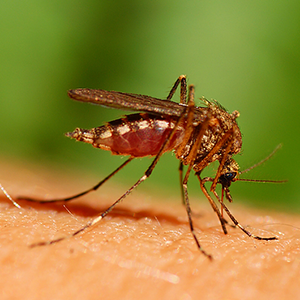What is Zika?
Zika is a disease caused by Zika virus that is spread to people primarily through the bite of an infected Aedes species mosquito. While many people (about 80%) with Zika don’t have symptoms, the most common symptoms of Zika are fever, rash, joint pain, and conjunctivitis (red eyes). The illness is usually mild with symptoms lasting for several days to a week. People usually don’t get sick enough to go to a hospital, and they very rarely die of Zika.
Should we be concerned about Zika in Spokane County or Washington state?
Zika virus is primarily transmitted through the bite of infected Aedes mosquitoes. These mosquitoes are not found in the Pacific Northwest. However, travelers who visit an area where Zika virus transmission is ongoing could become infected if bitten by a mosquito. The virus can also be passed from infected mother to fetus during pregnancy.
Although there have been multiple reports of blood transfusion transmission cases in Brazil and these reports are currently being investigated--there are no such reports in the United States.
What are the symptoms of Zika?
About one in five people infected with Zika will get sick. For people who get sick, the illness is usually mild. For this reason, many people might not realize they have been infected.
The most common symptoms of Zika are fever, rash, joint pain, or conjunctivitis (red eyes). Symptoms typically begin two to seven days after being bitten by an infected mosquito.
What countries have Zika virus?
Local transmission of Zika virus has been reported in many countries and territories. Specific areas where Zika virus transmission is ongoing are likely to change over time. If traveling, please visit the CDC Travelers’ Health site for the most updated travel information.
How is Zika virus transmitted?
The Zika virus is primarily transmitted through the bite of infected Aedes mosquitoes, the same mosquitoes that spread Chikungunya and dengue. These mosquitoes are aggressive daytime biters and they can also bite at night. Mosquitoes become infected when they bite a person already infected with the virus. Infected mosquitoes can then spread the virus to other people through bites. It can also be transmitted from a pregnant mother to her baby in utero during pregnancy or around the time of birth. The virus can also be spread through contact with an infected person's blood or through sexual contact.
Who is at risk of being infected?
Anyone who is living in or traveling to an area where Zika virus is found who has not already been infected with Zika virus is at risk for infection, including pregnant women. Or those who come in contact with infected blood or have sexual contact with an infected person.
What can people do to prevent becoming infected with Zika virus?
There is no vaccine to prevent Zika. The best way to prevent diseases spread by mosquitoes is to avoid being bitten when traveling to or living in countries with ongoing Zika virus transmission. Protect yourself and your family from mosquito bites. Here’s how:
- Wear long-sleeved shirts and long pants.
- Stay in places with air conditioning or that use window and door screens to keep mosquitoes outside.
- Use Environmental Protection Agency (EPA)-registered insect repellents. All EPA-registered insect repellents are evaluated for effectiveness.
- Always follow the product label instructions.
- Reapply insect repellent as directed.
- Do not spray repellent on the skin under clothing.
- If you are also using sunscreen, apply sunscreen before applying insect repellent.
- If you have a baby or child:
- Do not use insect repellent on babies younger than 2 months of age.
- Dress your child in clothing that covers arms and legs, or
- Cover crib, stroller, and baby carrier with mosquito netting.
- Do not apply insect repellent onto a child’s hands, eyes, mouth, and cut or irritated skin.
- Adults: Spray insect repellent onto your hands and then apply to a child’s face.
- Treat clothing and gear with permethrin or purchase permethrin-treated items.
- Treated clothing remains protective after multiple washings. See product information to learn how long the protection will last.
- If treating items yourself, follow the product instructions carefully.
- Do NOT use permethrin products directly on skin. They are intended to treat clothing.
- Sleep under a mosquito bed net if you are overseas or outside and are not able to protect yourself from mosquito bites.
Individuals should also use condoms if concerned about transmission from sexual contact with an infected person.
How is Zika diagnosed?
- See your healthcare provider if you develop symptoms (fever, rash, joint pain, red eyes). If you have recently traveled, tell your healthcare provider.
- Your healthcare provider may order blood tests to look for Zika or other similar viral diseases like dengue or chikungunya.
What should I do if I have Zika?
There is no vaccine or specific medicine to treat Zika.
Treat the symptoms:
- Get plenty of rest
- Drink fluids to prevent dehydration
- Take medicine such as acetaminophen to reduce fever and pain
- Do not take aspirin or other non-steroidal anti-inflammatory drugs
Protect others - View CDC Handout: During the first week of infection, Zika virus can be found in blood and passed from an infected person to another person through mosquito bites. An infected mosquito can then spread the virus to other people. To help prevent others from getting sick, avoid mosquito bites during the first week of illness.
Pregnant women who have recently traveled to an area with Zika should talk to their healthcare provider about their travel even if they don’t feel sick. It is especially important that pregnant women see their healthcare provider if they develop a fever, rash, joint pain, or red eyes during their trip or within 2 weeks after traveling to a country where Zika cases have been reported. Be sure to tell your healthcare provider where you traveled.
Is there a vaccine to prevent or medicine to treat Zika?
No. There is no vaccine to prevent infection or medicine to treat Zika.
Are you immune for life once infected?
Once a person has been infected, he or she is likely to be protected from future Zika infection.
Does Zika in pregnant women cause birth defects?
There have been reports of a serious birth defect of the brain called microcephaly (a condition in which a baby’s head is smaller than expected) and other poor pregnancy outcomes in babies of mothers who were infected with Zika virus while pregnant. CDC scientists recently (April 2015) announced that there is now enough evidence to conclude that Zika virus infection during pregnancy is a cause of microcephaly and other severe fetal brain defects and has been linked to problems in infants, including eye defects, hearing loss, and impaired growth. Scientists are still studying the full range of other potential health problems that Zika virus infection during pregnancy may cause.
There are still many things we don’t know about Zika and pregnancy, including how likely it is that Zika will pass to a fetus, if a Zika-infected fetus develops birth defects, and when in pregnancy the infection might cause harm to a fetus.
Due to the potential for adverse outcomes in certain populations, CDC recommends special precautions for the following groups:
- Women who are pregnant (in any trimester):
- Consider postponing travel to any area where Zika virus transmission is ongoing.
- If you must travel to one of these areas, talk to your doctor first and strictly follow steps to prevent mosquito bites during your trip.
- Women who are trying to become pregnant:
- Before you travel, talk to your doctor about your plans to become pregnant and the risk of Zika.
- Strictly follow steps to prevent mosquito bites during your trip.
- Men who have a pregnant partner or partner who may become pregnant who have traveled to a Zika affected area:
- Abstain from sex or use condoms for six months beyond when symptoms of Zika first develop (fever, rash, joint pain, and conjunctivitis)
- Abstain from sex or use condoms for two months beyond when the last possible exposure to Zika could have occurred (i.e. departure from the affected area).
For more questions and answers on Zika and pregnancy, see CDC's Questions and Answers: Zika and Pregnancy
What should a pregnant woman do if she has previously traveled to a place with a Zika outbreak?
Pregnant women who have recently traveled to an area with Zika should talk to a healthcare provider about their travel even if they don’t feel sick. CDC has guidance to help doctors decide what tests are needed for pregnant women who may have been exposed to Zika virus. CDC recommends that all pregnant women who have traveled to an area with Zika talk to their doctor. It is especially important that pregnant women see a doctor if they develop a fever, rash, joint pain, or red eyes during their trip or within 2 weeks after traveling to a country where Zika has been reported. They should tell the doctor where they traveled.
Is it safe to get pregnant after traveling to a place with a Zika outbreak?
Women thinking about getting pregnant who have recently traveled to an area with Zika should talk to their healthcare provider. Once a person becomes sick, Zika virus usually remains in the blood for about a week. Zika virus has been found in semen longer. Currently, there is no evidence to suggest that Zika virus, after it is cleared from the blood, poses a risk of birth defects for future pregnancies.
Is Zika transmitted through sex?
Zika virus can be spread by a man to his sex partners and the virus can be present in semen longer than blood. However, we do not know how long the virus is present in semen. We also do not know if men who have never had symptoms of Zika can transmit the virus through sex. Because of the link between Zika and birth defects, men who have traveled to an area where there is ongoing transmission of Zika virus should abstain from sex with pregnant partners or use condoms consistently and correctly (for six months from the start of symptoms if the man had symptoms; for two months from the last possible exposure to Zika if no symptoms were present). At this time, we do not know if a woman can transmit Zika virus to her sex partners. For more information about Zika and sexual transmission, please visit the CDC website.
Does Zika cause Guillain-Barré syndrome (GBS)?
Guillain-Barré syndrome (GBS) is a rare disorder where a person’s own immune system damages the nerve cells, causing muscle weakness and sometimes paralysis. These symptoms can last a few weeks or several months. While most people fully recover from GBS, some people have permanent damage and in rare cases, people have died.
We do not know if Zika causes GBS. It is difficult to determine if any particular pathogen “caused” GBS. The Brazil Ministry of Health is reporting an increased number of people affected with GBS. CDC is working to determine if Zika and GBS are related.
Is this a new virus?
No. Zika virus was first identified in 1947 in Uganda. Outbreaks of Zika previously have been reported in tropical Africa, Southeast Asia, and the Pacific Islands. Zika virus likely will continue to spread to new areas. In May 2015, the Pan American Health Organization (PAHO) issued an alert regarding the first confirmed case of Zika in Brazil.
How many travel-associated cases have been diagnosed in the United States?
CDC continues to work with states to monitor the United States for mosquito-borne diseases, including Zika. In 2016, Zika became a nationally notifiable condition. Healthcare providers are encouraged to report suspected cases to their state or local health departments to facilitate diagnosis and mitigate the risk of local transmission. To date, local vector-borne transmission of Zika virus has not been identified in the continental United States. Limited local transmission may occur in the mainland United States but it’s unlikely that we will see widespread transmission of Zika virus in the mainland U.S.

Animals & Insects Program
Preventing the spread of disease from animals to humans is a public health responsibility.

Bring It, Summer Pests!
Confront disease-carrying mosquitoes, ticks and mice during spring and summer months. Simple landscaping tricks and tips to protect home’s exterior.

